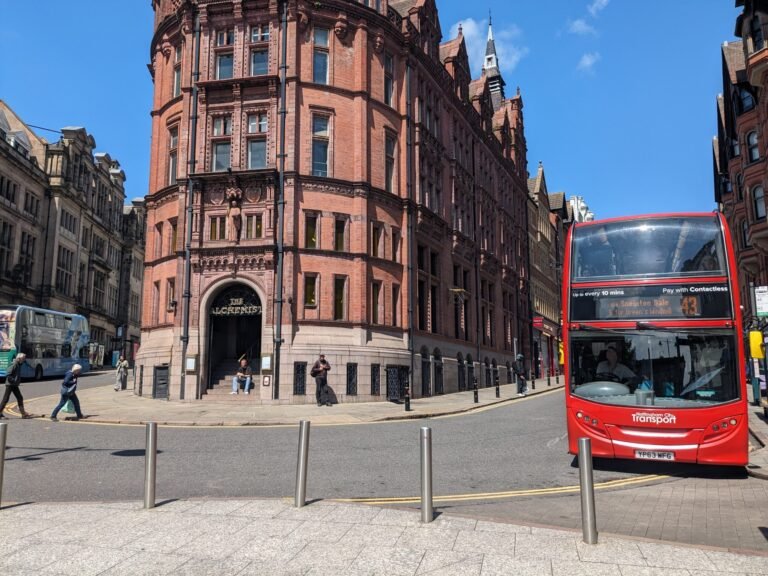Centre for Cities’ latest city visit took us to Nottingham, the largest city in the East Midlands. Of the myriad things going on in the city at the moment, two of them – the city’s fledgling devolution settlement and the financial challenges it faces – stood out.
The East Midlands Combined County Authority is in its infancy
Nottingham is the last of England’s big cities to become part of a mayor-led devolution deal, with the East Midlands’ first mayor – Claire Ward – taking her post in May. Unlike deals covering other major cities, the East Midlands deal uses a new ‘combined county authority’ model which covers the cities of Nottingham and Derby and their hinterlands, rather than devolving to both places individually. Because county deals are signed with upper-tier authorities, the model excludes district councils and effectively creates a three-tier structure.
As we argued back in September 2022, Nottinghamshire and Derbyshire are different places with different needs, and there is a risk that EMCCA’s triple-tier structure will not be conducive to meeting them. Time will tell if these fears are warranted. After all, the devolution arrangements are just weeks old, but the Mayor’s decision to set up shop in Chesterfield rather than in either of the authority’s two major economic centres suggests that the politics of place in the EMCCA are already active.
Financial problems are not going away
Like many local authorities, Nottingham is facing considerable financial challenges. In November last year, it issued its second section 114 ‘bankruptcy’ notice in two years, and commissioners are in place to return to help make the authority solvent.
As is the case for many places throughout the country, Nottingham’s problems are rooted in increasing demand for services in the face of financial austerity. Councils cannot raise taxes easily, and between 2010 and 2020 grants from central government were cut by 40 per cent in real terms. Falling financial firepower has turned councils into bodies devoted mostly to providing the services demanded by law, like social care. Back in 2019, Cities Outlook showed that number of urban councils that were already spending more than 50 per cent of their budgets on social care had risen eightfold since 2009/10. The situation is almost certainly worse now, and without a major intervention the wave of bankruptcies will continue.
One of the biggest problems emerging from councils being stripped back to their statutory obligations is that the opportunities to pursue growth and implement preventative measures are increasingly limited. For example, Nottingham’s leaders are very concerned by the levels of deprivation and child poverty in the city, but without the resources to pursue economic development the council is only able to treat the symptoms and not the causes.
If the evidence from the national economy is anything to go by, cutbacks in areas such as economic development will merely store up problems for the future, compounding the revenue problems local authorities face.

